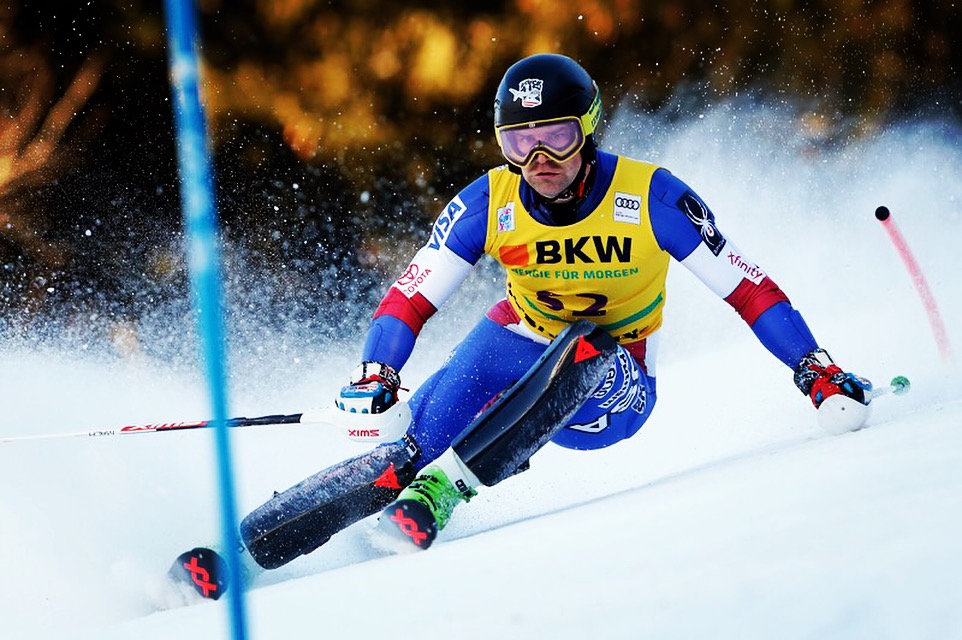Life is full of transitions. I have gone through my fair share as a professional athlete. In the past 11 years, I’ve gone from graduating high school, qualifying for the U.S. Ski Team, enrolling in Dartmouth College and qualifying for three Olympic Winter Games, to going through two hip surgeries and five knee surgeries leaving me on crutches for almost a year, graduating from college, retiring from ski racing and starting a finance job in New York City. I’m no stranger to having my life change in an instant, but these transitions has confirmed what I have heard many times, “the only constant in life is change.”
Being prepared for the unexpected is essential to being a ski racer. The amount of variability in the sport is almost endless. The weather, the snow, the course set, my equipment and my body are all things that change from day to day. In the end, the person who is able to find stability within the chaos is the one who will continue performing at the highest level. I’ve found that the more I prepare for an unknown future, the more comfortable I am adapting when it arrives. For me, that involved beginning a college education in the middle of what would be the peak of my athletic years. It involved continuing to attend Dartmouth when my body broke down again and again. It also molded my mindset while rehabbing my injuries through the time I graduated college and became a full-time ski racer again. Even then, I knew that, although I was pretty healthy, there was an overwhelming probability of reinjuring myself in the future. The true finite nature of the sport became apparent to me, and I didn’t want to be left unprepared when I reached the end of the course that was my ski-racing career.
My final year ski racing was my first one competing in almost three full years. More precisely, there were almost 155 weeks between world cup races for me. Returning to skiing was something I needed to do to prove to myself that I could still compete at a high level. Some people questioned whether it was the smart choice to make, but in my mind, it was the only option. Since I had finished school, I planned to devote my free time when not training or competing to figuring out what I could be passionate about beyond the mountains. I spoke with whomever I could that might be able to offer useful wisdom for the future. I took an internship with the ski team to expand my base of knowledge and life experiences. I ultimately changed my mindset.
I’ve been incredibly lucky in life while being surrounded by amazing people throughout. That combined with my work ethic, determination and skills learned over the years put me in a great position to succeed both on the hill and off. Still, there are things I needed to practice to ensure I would be prepared for the future. Ever since I graduated high school, and for some time before that, I have tried to embrace new experiences to get familiar with being in a place where the end result is not guaranteed. I constantly put myself in uncomfortable positions so that when I am forced into a situation with those feelings, I know that they are not based in reality but are rather product of my mind.
Now that I’m here, I’ve had to adjust. Spending the amount of time that I do in an office has been the most drastic, but inevitable, adjustment. No longer can I spend many hours a day in the gym. I’ve had to rely on my time management skills to keep myself from falling into a cycle of just working, eating and sleeping. I’ve also had to work hard to build some sense of community. There are so many people living in NYC, including many I knew prior to moving here, but it’s easy to feel very alone at times. I’m hoping that begins to change as I adjust as time goes on. The lack of consistent feedback has also been a radical change for me. No longer do I have a way to instantly know how well I’m doing. There’s no timer like we have while ski racing. This new environment will take a long time to figure out. That being said, some transitions have been more seamless than others. I am now living a much less nomadic lifestyle than the one I lived the past 11 years. Having a consistent home base makes creating a routine much easier. On that front, now that I live closer to my extended family, I am able to spend more time with them throughout the year.
Beyond the lifestyle changes that occurred when I transitioned out of ski racing, there will be many mental ones as well. I think that, for me, one of the skills I learned in ski racing that I will continue to use is the ability appreciate the small victories. In ski racing it’s not a head to head competition, but a race between upwards of 140 athletes with only one winner. Without having my known feedback structure, I will depend on this mental skill to help balance my mind.
With these skills, combined with the other attributes I’ve gained from skiing, I have confidence in whatever happens in the future. Regardless of the sport in which you competed, being a flexible and adaptable person who is willing to learn is the best way to position yourself for success when transitioning into a new job, moving to a new city or getting further education.


